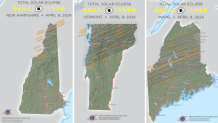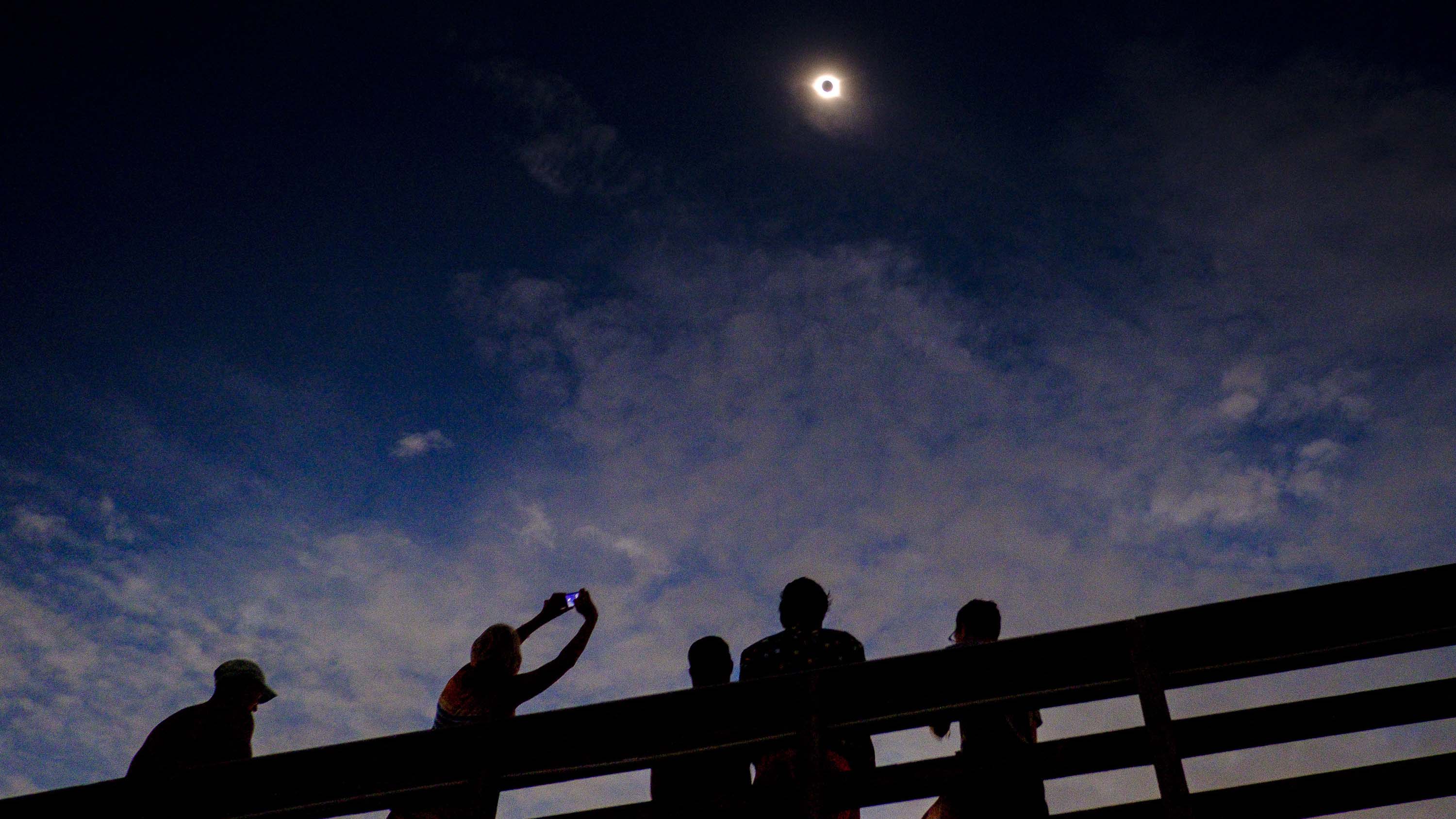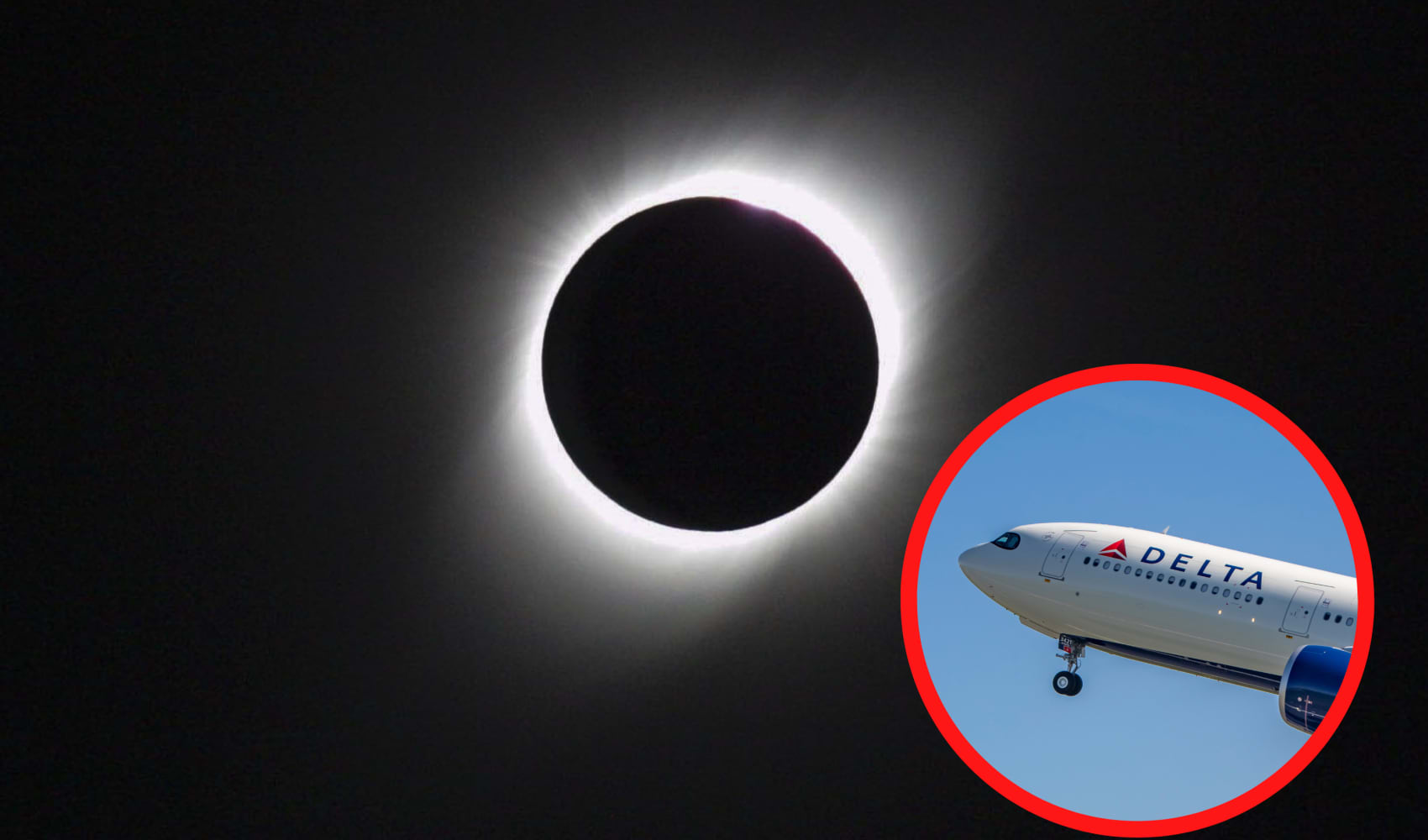Next month's total solar eclipse is expected to be a major tourism draw for those areas seen as prime viewing spots. In New England, those areas include northern New Hampshire, Vermont and Maine.

Tourism officials in all three states are already busy preparing for a potential influx of hundreds of thousands of visitors ahead of the big event on April 8. The total solar eclipse is expected to occur between 3:20 and 3:40 p.m., depending on the state, though a partial eclipse will be occur for about an hour before and afterward.
NBC10 Boston meteorologist Pamela Gardner explained in this post last month what totality means and how long it will last.
Get New England news, weather forecasts and entertainment stories to your inbox. Sign up for NECN newsletters.
Here's what you need to know for each state:
New Hampshire
New Hampshire officials issued a press release last month saying that state agencies have been working with local communities and businesses to prepare for the eclipse.
While the entire state will experience the eclipse, the northernmost part of the state, from Lancaster north to the Canadian border, will experience totality. The rest of the state will experience a partial eclipse at about 95% totality.
Totality in the Great North Woods will last about three minutes and 30 seconds and will vary slightly from west to east as it begins and ends, state officials said.
“New Hampshire is the place to be on April 8 – no other spot can eclipse the views we’ll have in the North Country!” Gov. Chris Sununu said. “From making viewing glasses available to schools to working hand in hand with towns, we’re on-track for a truly stellar day.”
A list of special events and lodging packages taking place during the solar eclipse in New Hampshire can be found at NHSolarEclipse.com.
Here's a list of tips released by state officials:
- Prepare for unpredictable weather. In New Hampshire, April may bring snow and ice or warm weather and mud, all of which could impact road conditions. Plan ahead for the weather by researching where you’re going. If you plan to be outdoors, bring proper gear and dress properly for changing weather conditions.
- Arrive early, stay late. There are limited routes leading into and out of the northern part of New Hampshire. Expect delays when traveling and avoid unnecessary travel on the day of the eclipse by choosing your viewing location ahead of time. Park in designated areas. Do not plan to pull over on the side of the roadways to view the eclipse, doing so can put you at risk of getting stuck in mud or snow, and tow trucks could face major delays in getting to you. Visit NewEngland511.org for up-to-date road information.
- Bring supplies. Businesses are preparing to welcome visitors, but it’s still a good idea to pack some essential supplies such as water and snacks. Be sure to have a full tank of gas, and if you have an electric vehicle, map out charging stations before you leave your home.
- Practice leave no trace. Pick up after yourself and be kind and respectful to others who are here for the eclipse.
- Wear proper eye protection. Safely viewing a solar eclipse requires specialized glasses to protect your eyes from the sun’s light. Glasses must meet the ISO 12312-2 international safety standard. While New Hampshire does not endorse any specific brand of solar eclipse glasses, you can find a list of manufacturers on the American Astronomical Society website.
- Educate yourself and others. The New Hampshire Department of Education (NHED) has compiled a list of educational resources from numerous sources that includes activities and videos. NHED also is providing nearly 65,000 ISO-certified solar eclipse safety glasses to school districts through the state that requested them. Schools with questions regarding educational materials or safety glasses orders can contact comms@doe.nh.gov.
“This is one of the most anticipated events this year, and we’re looking forward to welcoming visitors to experience this celestial phenomenon,” New Hampshire Travel and Tourism Director Lori Harnois said. “We expect a significant influx of people, which has the potential to bring business to our tourism industry during a shoulder season. We do, however, want to remind residents and visitors alike, to plan ahead, especially if you’re preparing to travel the day of the eclipse as there are limited routes in and out of the path of totality.”
Vermont
The northern half of Vermont will experience a total solar eclipse. State officials say Burlington on Lake Champlain, the largest city in Vermont, will enjoy about three minutes and 15 seconds of totality. Other cities inside the path are Montpelier, St. Albans City, Williston, Newport and St. Johnsbury.
If eclipse day is clear, state officials suggest taking a chairlift ride at Stowe Mountain Report, Smugglers' Notch Resort, Mad River Glen Cooperative, Sugarbush Resort, Jay Peak Resort or Burke Mountain to see spectacular views.
For eclipse viewing, mobility is essential especially in case of inclement weather. Interstate 89 along the western side of the state and Interstate 91 along the eastern side will provide some options in case relocation is needed due to cloud cover.
Here are some tips from state officials for viewing the eclipse:
- Get your eclipse glasses early! They will sell out in the weeks before eclipse day. We offer eclipse glasses which are ISO 12312-2 certified and made in the USA at www.greatamericaneclipse.com/eclipse-viewing/eclipse-viewing-glasses
- Learn the simple methods to safely view a solar eclipse. Visit eclipse.aas.org/eye-safety for detailed instructions.
- Plan ahead. If you choose to stay in a hotel, be aware that most will sell out. A perfect guide to planning your eclipse is our field guide, greatamericaneclipse.com/books/field-guide-to-the-2023-and-2024-solar-eclipses.
- Get to your destination early and try to spend eclipse night at or near your viewing location. Expect the highways and freeways to be extra busy in the aftermath of totality.
- Be self-sufficient. Fill up your gas tank and bring food and water.
- Check the local TV weather reports as eclipse day approaches. The meteorologists will give you great advice on viewing the eclipse and whether you may need to relocate. We recommend eclipsophile.com as the essential site for eclipse meteorology.
- Unless you are an experienced photographer, we recommend that you not attempt photography during the eclipse. You will be so stunned that it will be difficult to operate a camera. If you choose to do photography, visit Fred Espenak’s MrEclipse.com for advice.
Maine
All of Maine will experience the eclipse to some degree, state officials said. Some communities are in its path of totality, including most of Aroostook County. Houlton is the last town in the continental U.S. to see the event and one of the places to experience the longest period of total darkness in Maine. Other area towns along the path include Island Falls and Presque Isle.
Other regions in Maine will be in the path of totality, including the towns of Millinocket, Rangeley, Greenville, Jackman and Carabassett Valley, which will also experience approximately three minutes of totality.
Officials urge visitors to plan ahead if they are traveling to one of the various Maine locations in the path of totality. Lodging and other amenities are limited in early April, and Maine State Park campgrounds and the North Maine Woods are closed for camping. Be sure to have reservations in advance and plan for unpredictable weather. Conditions in April are typically characterized by deep snow, treacherous icy terrain and mud.
For a list of community events and accommodation packages, click here.
Here's a list of safety tips provided by state officials:
- Wear eclipse glasses while viewing.
- Stay on paved roads.
- If hiking, stay on clearly marked trails. Check here for early season hiking tips from the Maine Dept. of Inland Fisheries & Wildlife.
- Ice will not be safe. Stay off lakes that may look frozen.
- Ask permission to access privately-owned land.
- Be prepared for unpredictable weather, which could be winter-like.
- Research your destination and have reservations in place.
- Be prepared for a high volume of traffic that may cause delays.
- Have an emergency kit in your vehicle.
- Do not rely on GPS in rural locations.
For more information on planning your trip to Maine to see the 2024 solar eclipse, click here. To check out the best locations to experience Maine’s night skies at any time of year, click here. While you're in Maine for the eclipse, plan to come early or extend your stay.




